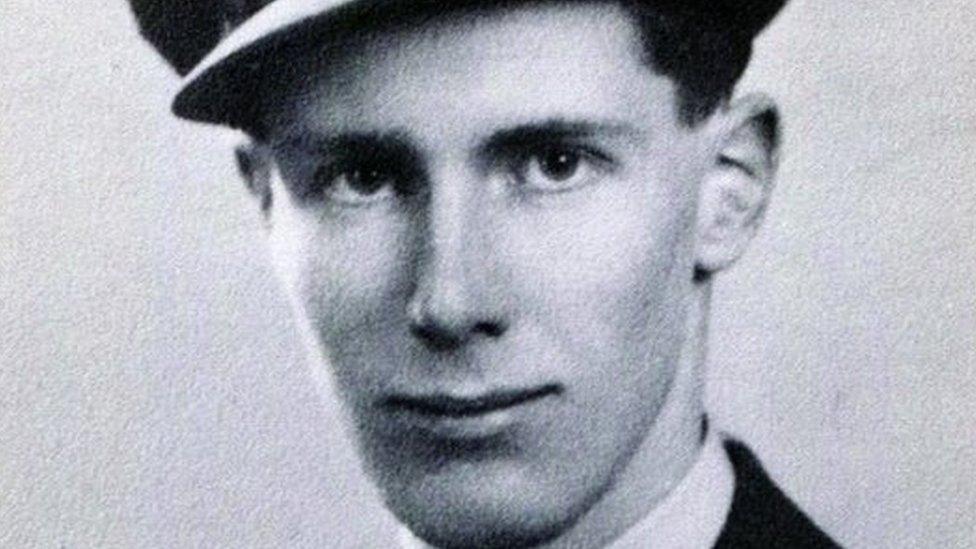Dambusters dog: Headstone replaced to remove racist name
- Published
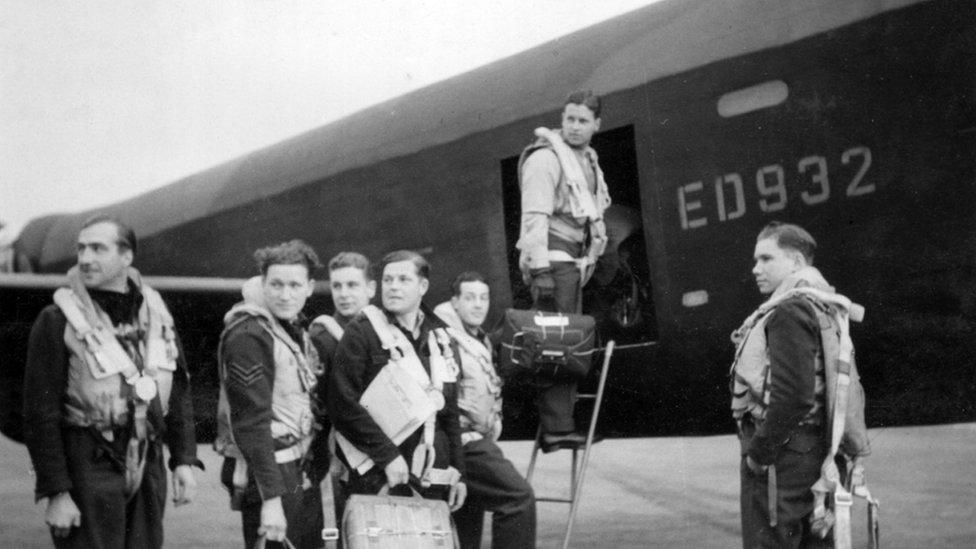
The RAF said the gravestone had been replaced "as part of an ongoing review of its historical assets"
A gravestone honouring the Dambusters' dog - whose name is a racial slur - has been replaced.
The 617 Squadron's mascot, a black Labrador, died on the day of its famous "bouncing bomb" raid on German dams in 1943.
A memorial at the Dambusters' World War Two base, RAF Scampton, bearing the dog's name was removed.
The RAF said it did not want to give prominence to an offensive term that went against its ethos.
Sir Edward Leigh, Conservative MP for Gainsborough, said he was "very fearful of our ability today to erase or re-write history".
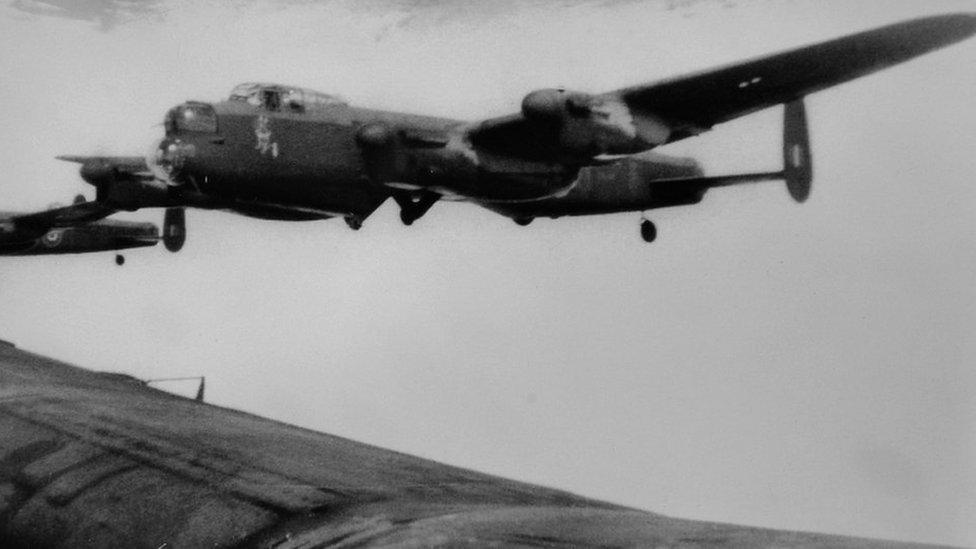
The dog's grave is at RAF Scampton, home to an exhibition about the mission, known as Operation Chastise
Kris Hendrix, campaigns manager at the RAF Museum, said the dog - which the BBC is not naming - was a "drinking buddy" for squadron members and would consume litres of beer before passing out.
He was hit by a car and killed on 16 May 1943, but his death was kept from the airmen as it was feared they might see it as a bad omen.
Mr Hendrix added: "It was such a famous dog, it was such a famous squadron and that meant the grave has been kept until today.
"The standards have changed throughout the years, while it may not have been a controversial name during the Second World War, things are very different now."
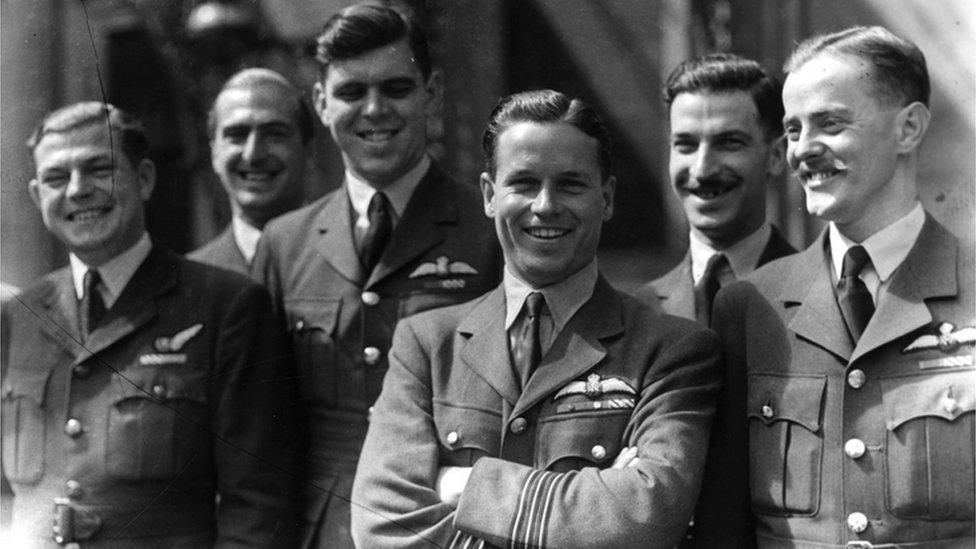
The Labrador was owned by the squadron's wing commander, Guy Gibson (centre)
Sir Edward said he had written to the station commander of RAF Scampton about the change.
In his letter, shared with the BBC, he said: "Undoubtedly we are both more sensitive and more sensible today when it comes to the delicateness of racialist and derogatory terminology which had been used with unfortunate informality in the past.
"I am, however, very fearful of our ability today to erase or re-write history. The past needs to be explained, taught about, and learned from - not re-written."

Follow BBC East Yorkshire and Lincolnshire on Facebook, external, Twitter, external, and Instagram, external. Send your story ideas to yorkslincs.news@bbc.co.uk, external.
- Published25 January 2020
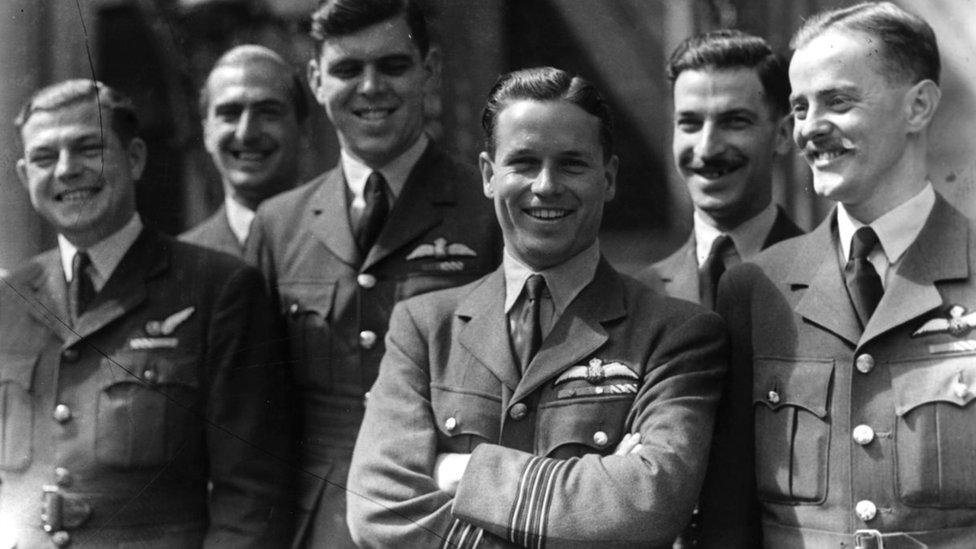
- Published24 July 2018
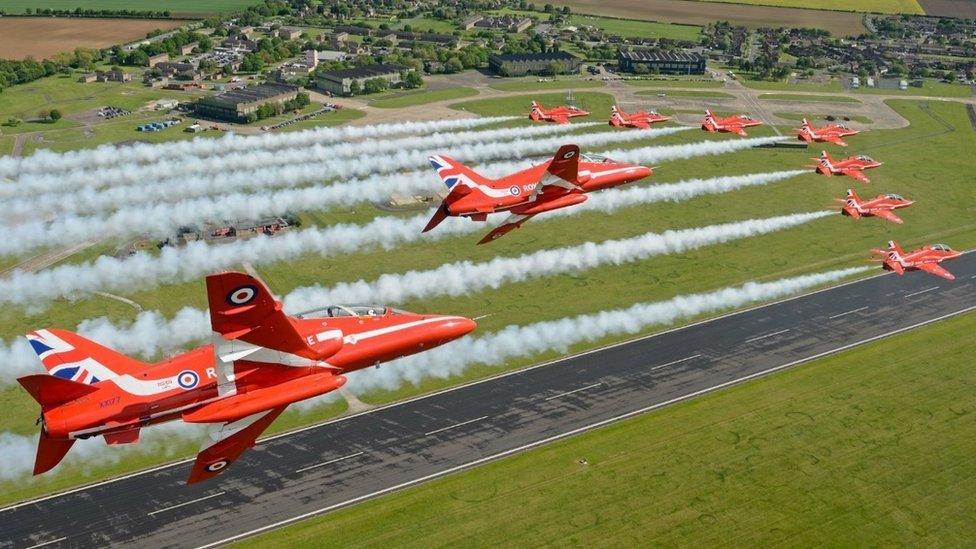
- Published12 May 2018
